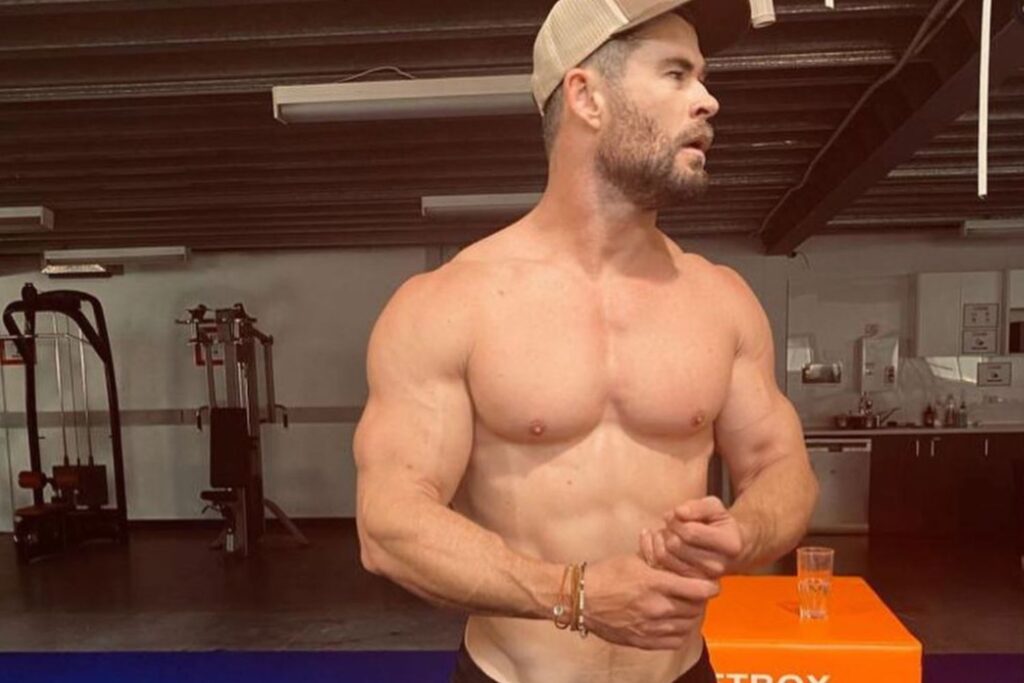LOSING WEIGHT IS hard. From the diet changes to the ramped-up workouts, it can take a serious overhaul of your lifestyle. And usually, the goal is to decrease body fat and increase muscle. But sometimes in that quest, you can start to lose muscle instead of fat—and that’s not a great scenario.
“It is bad to lose muscle instead of fat, because muscles are the key players in body movement and function,” says Gerardo Miranda-Comas, M.D., Assistant Professor of Rehabilitation Medicine, Icahn School of Medicine at Mount Sinai. “With loss of muscle mass, strength and endurance are affected negatively, leading to decreased functional performance.”
But your body shouldn’t naturally go for muscle first in weight loss—if you’re doing it right. “A person who is attempting to lose weight by not eating may lose weight in muscle first before fat,” he says.
How does that happen? Well, the body likes to go for carbs (glucose) for energy first. If that’s not available, it goes for glycogen, which is glucose that’s been stored in the liver and muscles, says Miranda-Comas.
So, how can you tell if you’re losing muscles and not fat? Here are 6 signs.

1. Your workout feels more strained
It may seem kind of obvious, but your workouts might feel harder–and you may feel like skipping it altogether.
“You’ll notice less strength in the gym. The weight you used to be able to do for reps may decrease or you may not be able to get as many reps as you once did for each set,” says Spencer Nadolsky, D.O., author of The Fat Loss Prescription.
2. You feel weak doing everyday activities
You won’t just feel muscle loss it in the gym. You’ll feel it going upstairs, carrying grocery bags, and carrying luggage.
“Inadequate nutrition can lead to a decrease in muscle, which may lead to impaired function,” says Dr. Miranda-Comas. “This is usually caused by an energy deficiency and possible overtraining.”
“In the very active individual who is losing weight along with a decrease in performance, we must consider overtraining,” says Dr. Miranda-Comas.
3. Your body fat percentage isn’t budging
If you’re losing weight but your body fat percentage is staying the same, it’s probably a sign you’re losing muscle.
“Your body won’t shape the way you want. You’ll notice shrinking circumferences, but the pinch-able fat is the same,” says Dr. Nadolsky.
4. You’re losing weight at a rapid pace
While you may be pumped at seeing those numbers, it’s probably not good news for your muscle mass—unless you have a lot of fat to lose to start.
“The more fat you have, the more likely you’ll lose more fat than muscle when losing weight,” says Dr. Nadolsky.
Losing weight rapidly is usually not sustainable, either.
“Weight loss requires a long period of time and being patient—it’s a marathon and not a sprint. People should (only) lose 1-2 pounds per week,” says Delbridge.
For tips from real guys who lost significant amounts of weight, check out our list of the year’s most jaw-dropping weight loss transformations.
5. Your workouts never progress
It goes without saying that it’s hard to push yourself when you’re tired. If you can never go up in weight when lifting that might be another sign you’ve lost muscle, according to Albert Matheny, C.S.C.S, R.D., founder of Soho Strength Lab. “A lot of factors affect performance, but not seeing progress in training is a good sign you’re not hitting your body’s needs,” he told Women’s Health.
6. You’re tired all the time
If you’re often tired, it might mean that you’re not eating enough. If you’re not eating enough, your body will lack the carbohydrates it needs for energy, so it will go for the muscle to get glycogen.
To sustainably lose weight without losing muscle, aim for weight loss of about pound a week—which is a deficit of around 200 to 500 calories a day, depending on your activity level. Talk to a registered dietitian or doctor to figure out what a healthy caloric deficit is for you.
This article originally appeared in Men’s Health US.
Related:
The best meal delivery services for muscle growth
The Blue Zones diet is awesome – except for one unfortunate flaw
















